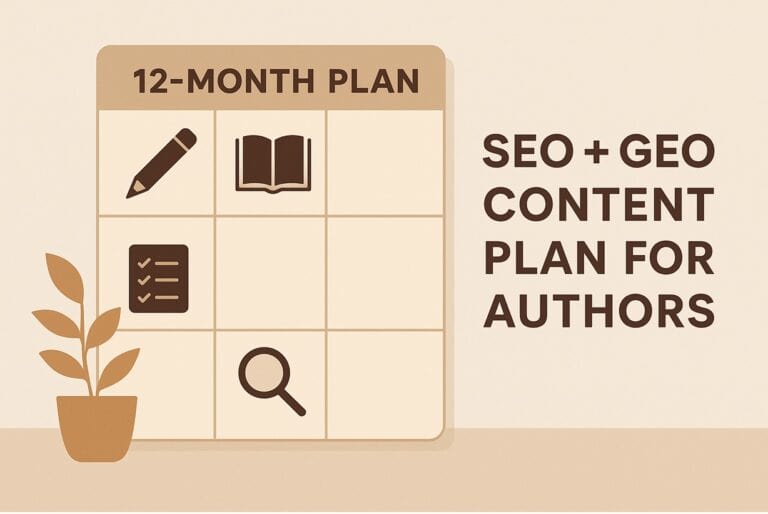Project Management: 10 Best Tips and Tools for New Authors
 Discover how project management can help you achieve your writing goals. Learn the essential skills, best tools for managing writing projects, and tips for efficient project management in writing. Streamline the creative process and improve your writing productivity.
Discover how project management can help you achieve your writing goals. Learn the essential skills, best tools for managing writing projects, and tips for efficient project management in writing. Streamline the creative process and improve your writing productivity.
“The secret of getting started is breaking your complex overwhelming tasks into small manageable tasks, and then starting on the first one.” – Mark Twain.
In the world of writing, juggling multiple projects as a new author can feel like attempting to tame a wild beast. It’s exhilarating, full of unexpected turns, but it can be overwhelming if not approached with the right strategies. Whether you’re a first-time author or a creative soul testing the waters of digital writing, managing multiple writing projects is an art in itself. It requires as much dedication and skill as the craft of writing.
Enter the world of project management.
Although project management is typically associated with the business arena, the skills and tools are indispensable allies in the author’s journey. They can transform the daunting task of handling several writing projects into an organized, smoothly running process.
Welcome to the next part of our series designed to assist new authors in Managing Multiple Writing Projects. This multi-part journey is designed with a singular goal in mind: to help you grow in knowledge as a new author on your writing journey.
Each guide spotlights a specific aspect of balancing multiple writing projects. This guide delves into the heart of project management. You’ll find practical advice on how to organize, plan, and monitor the progress of your writing projects. Learn basic project management principles, as well as specific tools and software to help you keep track of your projects. Discover the benefits of setting goals, planning, scheduling, prioritizing tasks, and monitoring progress. All of this forms the basis for managing different aspects of the projects as are covered in subsequent articles.
Buckle up and let’s dive into the exciting world of managing multiple writing projects.
Embracing Project Management in Writing
Imagine your writing projects as a herd of wild horses: passionate, inspiring, but all running in different directions. Project management is the skillful rider guiding those horses, aligning them toward a common destination.
For a new author, embracing project management is key to successfully juggling multiple projects without losing the creative spark. It’s about breaking down the enormous task of writing into bite-sized, manageable chunks, and keeping track of progress. As Mark Twain wisely suggested, getting started is often the hardest part, and project management tools can provide the nudge needed.
Understanding the Basics of Project Management.
Project management is a systematic approach to completing complex tasks. It involves planning, organizing, and directing resources (like time, money, and labor) to achieve specific goals within a set timeframe. While project management has its roots in business and construction, its principles are universal and highly applicable to the writing process.
Understanding the basics of project management is crucial for a new author. Most writing projects aren’t just about putting words on a page. Each project has distinct phases. These phases include concept development, drafting, revising, editing, and publishing or presenting. Each of these stages requires careful planning and execution, much like any other project.
When you view your writing as a project, you can break down the monumental tasks. For instance, if you’re writing a book, you can divide the stages into smaller, more manageable chunks: planning, drafting, revising, and publishing. Each of those stages can be further divided. Planning could be split into plotting and character development. The other stages also have subdivisions.
This shift in perspective from one enormous undertaking to more manageable tasks helps alleviate feeling overwhelmed when starting a new project. Whether you’re writing your first book, planning ahead for your blogs, or building an author brand, once you select a project, you need to organize and manage it. It introduces the fundamental level of organization and discipline needed to complete large-scale tasks.
Understanding the basics of project management allows you to approach writing with a clear, organized plan. By viewing your writing as a project, you can more effectively navigate each phase of the writing process, leading to a more successful and enjoyable writing experience.
Essential Project Management Skills for Authors
Juggling multiple writing projects calls for a unique set of multitasking skills. While writing may seem like a strictly creative endeavor, being successful in the writing world requires a mix of creative and practical skills. Beyond crafting compelling prose, you also need to effectively manage your time, stay organized, and communicate clearly, all skills central to effective project management.
Learning project management skills is vital in helping you navigate the complex and often demanding process of your writing projects. Each phase in the process requires different sets of skills, and mastering the can help you streamline your work and minimize unnecessary stress.
Planning & Organization.
Writing a book or other large writing projects requires meticulous planning. You must organize your thoughts, plotlines, character development, and research effectively. As a new author, you might find you have a plethora of ideas but struggle to streamline them into a cohesive structure. Good planning and organization skills can help structure and outline your work, making the drafting process much smoother. The organization helps you keep track of different project requirements, deadlines, and stages of completion. This is where project management tools can come in handy.
Time Management
Just like a juggler can’t drop a ball, you must ensure none of your projects are neglected. Writing a book or other significant writing projects is a long-term commitment. New authors often underestimate the amount of time it takes to write, revise, and publish a book. Good time management helps you establish a realistic writing schedule, helping you stay on track with your project without feeling overwhelmed. It’s about learning to balance writing time with other life responsibilities, a vital skill especially if you’re seeking to make a career out of writing.
Goal Setting & Prioritization.
Another essential project management skill is the ability to set and pursue clear, achievable goals. For a new author, this might involve setting daily word count targets or establishing deadlines for completing chapters or blogs. Prioritizing helps you decide which tasks need attention first. Sometimes, it’s the project with the nearest deadline. Other times, it’s the one aligned with your writing goals. As a new author, you can benefit from these skills, as they help maintain momentum and provide a clear path toward completing your project.
Essentially, project management skills can transform the daunting task of a large writing project into a structured, manageable project. As you master these skills, you can stay focused, organized, and motivated throughout your writing journey, increasing your chances of success in the writing world.
Tools for Managing Writing Projects
While managing multiple writing projects may seem intimidating, especially for a new author, you have a host of tools available to help simplify the process and increase efficiency. Incorporating these tools into your workflow can enhance your productivity and organization, making it easier to manage your projects successfully. Choosing the right tool depends on your specific needs and personal preference.
Writing Software.
Software, such as Google Docs, allows real-time editing and collaboration, making it easier for writers to receive feedback and make changes. While traditional word processors still hold value, you might want to explore specialized writing software designed for authors, such as Scrivener and Auto Crit. These programs help manage large writing projects, breaking them down into manageable sections. They offer features such as corkboard outlining, character profiling, and scene management, which simplify the planning and drafting process.
Project Management Tools.
Tools, such as Trello or Asana, can be useful for managing writing projects. You can create boards for each project, where you can track tasks, set deadlines, monitor progress, and even integrate with other tools. These tools also facilitate collaboration if you’re working with co-writers, editors, or beta readers.
Time Tracking Apps.
Time management is a crucial aspect of project management. Tools, such as RescueTime or Toggl, help monitor how you’re spending time. They provide insights into your most productive times of day and how long different writing tasks take, enabling you to optimize your schedule.
Cloud Storage.
Services, such as Google Drive or Dropbox, store your work securely online. This serves as a safeguard against data loss and allows you to access work from any device, making it easier to write on the go.
Grammar and Editing Tools.
Proofreading is another critical part of the writing process. Tools, such as Grammarly or ProWritingAid, can help polish your work. These tools identify grammar errors, awkward phrasing, and even plagiarism. They can help you analyze and improve your writing style. Because they’re invaluable for self-editing, we recommend using more than one. Although there are overlaps in what they do, each tool considers different aspects of writing.
As a new author, in particular, you can benefit from incorporating various tools into your workflow. As you juggle multiple projects and deadlines, the tools can keep your work organized and on track. They also reduce the administrative burden of managing projects, freeing up more time for writing. The tools help you focus on your writing and simplify your writing journey.
Tips for Efficient Project Management in Writing
Efficient project management can be a game-changer, especially if you’re just starting. If you’re a new author faced with multiple projects, you might find it challenging to juggle all the different tasks. But with strategic project management, you can stay on track and deliver quality work within specified deadlines. It’s about working smarter, not harder.
Here are some tips that can aid new authors in efficiently managing their writing projects:
Define Your Objectives.
Before starting a project, you should clearly define your objectives. What are you hoping to achieve with the project? It might be finishing a novel, publishing a series of short stories, or creating a website. By setting clear, measurable objectives, you can focus your efforts and track your progress effectively.
Create a Schedule.
Time management is a key part of project management. You should create a realistic schedule, setting aside dedicated writing time each day or week. This structure helps ensure your writing doesn’t fall by the wayside amidst other of life’s commitments.
Prioritize Tasks.
Not all writing tasks are created equal. Some are more critical or time-sensitive than others. You should use a prioritization method, like the Eisenhower Matrix, to determine which tasks need their attention first. This can prevent you from wasting time on less crucial tasks and help you meet important deadlines.
Break Down Projects.
Large projects may seem overwhelming, but they don’t have to be. It helps when you break them down into smaller, manageable tasks. This makes a project seem less intimidating, and it provides a clear roadmap of what needs to be done. It also allows for more tangible progress tracking.
Regularly Review & Adjust Your Plan.
Flexibility is vital in project management. Even with a well-planned schedule, unexpected challenges will arise. It’s important to review your plan regularly and be prepared to adjust it as necessary. This might involve extending a deadline, re-prioritizing tasks, or seeking help when needed.
Embracing project management can significantly influence your success. Because project management enables you to make the most of your time and resources, it can increase your chances of success.
Final Thoughts
While managing multiple writing projects may seem overwhelming, with the right skills and tools you can turn the challenge into a rewarding experience. The skills and tools can help streamline your writing journey. By breaking down tasks, keeping track of progress, and balancing work with well-being, you can juggle multiple projects without compromising your creativity or productivity. So apply project management to your writing journey.
We hope you have found the project management strategies useful and inspiring. We hope they’ll equip you with the insights and tools needed to help you succeed as a new author.
If you’d like, you can start this series of articles from the beginning: Managing Multiple Writing Projects: Tips for New Authors.
Writing is a journey of continuous learning and improvement, but you don’t have to go it alone. We’re excited to continue the journey with you, providing guidance and encouragement every step of the way. Our goal is to provide basic insights and practical advice to help you navigate the writing world with increased confidence.
Don’t wait. Start today.
How can we help? To let us know, please fill out our contact form. Happy writing!



